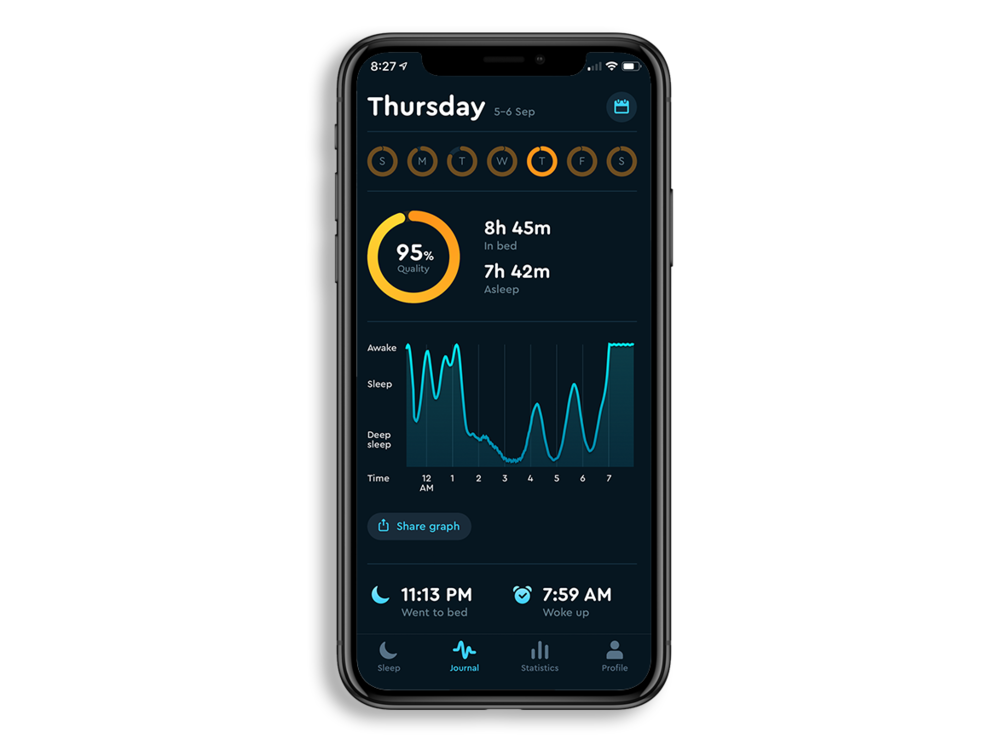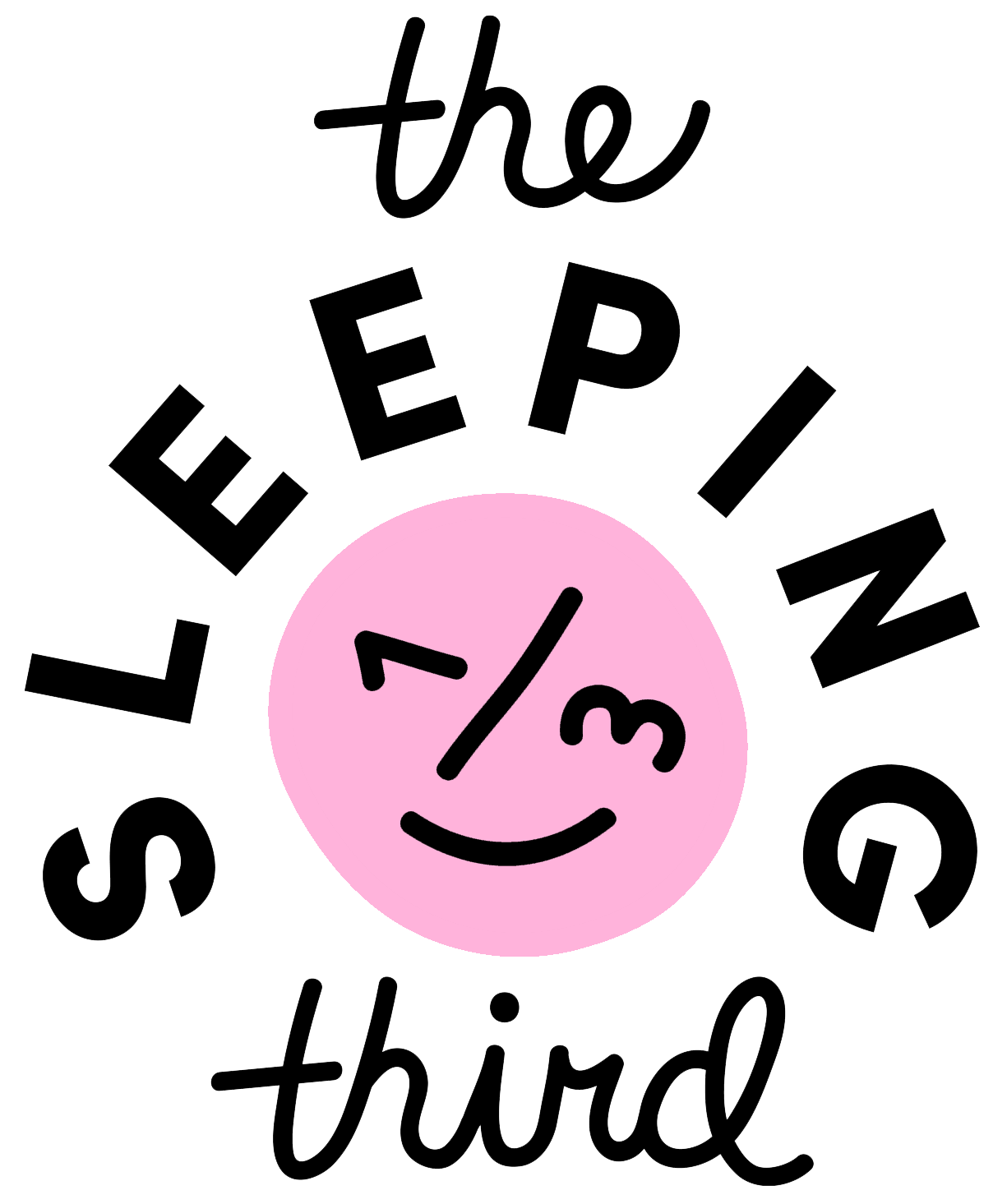Let’s Reclaim Our Sleeping Third
Sleep is the most essential restorative function we have. It quite literally makes us better at everything, and yet so many of us believe that we can easily skimp out on our sleeping time. Around the world, we are conditioned to be more productive with every moment, and we perpetuate a harmful myth that getting plentiful sleep is a symptom of the lazy.
Even when we do prioritize our sleep, our devices are making it much more difficult. Just five more minutes can turn into hours even with the best of intentions. There's always something to check, an email to read, a friend to text. Let's put down our phones and get our best sleep.
Getting your best sleep can be quite a challenge depending on your life circumstances. You may be a new parent, an overworked executive, a shift-worker, a student preparing for exams, or someone working multiple jobs. There's no magic formula for everyone. Find the specific routine that what works for you so that you can make adjustments - small and large - to prioritize sleep.
If you get anything out of the content here on The Sleeping Third, it's this one thing: Prioritize sleep and make it non-negotiable. Start by reading Matthew Walker’s, Why We Sleep.
Image by Lauren Kay - Be like this cat.
Sleep Fast Facts
Based on my research from the sleep experts, here are some of my favorite, eye-opening notes that will hopefully inspire you to close your eyes more willingly and much more often.
Adults Need 7-9 Hours
According the National Sleep Foundation, adults require 7-9 hours of sleep each night. To take it a step further, Matthew Walker introduces the idea of “Sleep Opportunity.” Giving yourself 7-9 hours of sleep opportunity means that you are in bed early enough to accomodate how long it takes you to fall asleep. See Sleep Time Recommendations.
Sleep Needs Will Change
The amount of sleep you need and the quality of your sleep will change over the course of your life. New parents and parents of teenagers know this all too well. You and your family must learn to adapt to your sleeping evolution and not fight it. See Sleep Time Recommendations.
Poor Sleep is a Health Risk
Not only does prolonged lack of sleep make you super challenging to be around on an emotional level (irritable, scattered, etc.), sleep deprivation is sited as a “public health problem” by the CDC. To summarize, poor sleep can lead to a slew of health problems, including increased risk of cancer, heart attack, and Alzheimers’s disease. Learn more here.
Lack of Sleep is like being Drunk
According to DrowsyDriving.org, “being awake for 18 hours is equal to a blood alcohol concentration (BAC) of 0.08%, which is considered legally drunk.” That has enormous consequences for those making critical decisions, operating machinery, operating on humans, flying planes… and to all of us who are driving.
Sleep Improves Skills
One of my favorite quotes from Matthew Walker’s book, Why We Sleep is this: "Practice does not make perfect. Practice, followed by good sleep, makes perfect. According to research, there is wisdom to “sleeping on it” - your brain continues to practice skill memories when you sleep. Athletes, musicians, artists, students - anyone learning or practicing - will benefit from more sleep.
Sleep Increases Productivity
A study conducted by RAND found that the U.S. annually loses about 1.2 million working days due to insufficient sleep. Prioritizing healthy sleep makes us better workers and more attractive to the company bottom line. I advocate for better sleep with my colleagues, all of whom have seen an increase in their productivity and wellbeing when they’re more mindful of sleep.
Resources
These are some favorite tools and resources for reading up on the critical importance from the pros. These resources are not paid endorsements, just personal favs.
Why We Sleep,
Matthew Walker
Matthew Walker is one of the most prolific advocates for sleep health today. His life-long research in sleep science and his mission to change the narrative of sleep in our culture is inspiring. I believe his book, Why We Sleep should be required reading for all. For some quick hits of wisdom, Google any of his super engaging talks.
The Sleep Revolution,
Arianna Huffington
Arianna Huffington is a high-profile, influential leader in business. It’s precisely for this reason that I love her book, The Sleep Revolution. Because our culture perpetuates the myth that sleeping is for the lazy and that we will “sleep when we die,” having a leader like Arianna as a spokesperson for sleep is enormous. Arianna’s Sleep Resources.
National Sleep Foundation
We seem to be in a golden age of sleep health, research, and science. More and more studies are launching on the impact of sleep on our health and how getting great sleep can truly make us better at everything. The National Sleep Foundation is an excellent go-to resource for sleep science, articles, and actionable tips.
Headspace
Mindfulness meditation can improve the quality of sleep and help relax the mind. We all have different relationships with meditation. For some, it’s more spiritual, and for others, it’s a way to pause. I love Headspace because it gradually helps those newer to mindfulness learn and grow. It’s a modern approach that works quite well for me.
Sleep Cycle
Tracking your sleep each day can be rewarding for a data nerd like me, but it also can help draw attention to sleep patterns. If you are shifting from a sub-optimal number of hours of sleep to 8 hours, you’ll benefit from having a way to keep track. There are many options, but I like Sleep Cycle as a directional way to understand my habits.
“Sleep makes everything else in life so wonderful, so worthwhile.”
- Earl Nightingale
Tips to Sleep Your Best
These are some favorite tips for getting your best sleep consistently over the long haul. Be kind to yourself as you implement life-long shifts in sleep.
Change Your Mind
The first step is to shift your mindset about sleep. We live in a society that often undermines the importance of sleep, and yet it is one of the most important things you can do for yourself. Change the narrative in you and others.
Keep a Routine
Set a nighttime routine that includes at least 30 minutes of wind-down before bed. Separate from the day and relax. Read a book (hardcopy), take a bath, or practice meditation. Keep your routine simple so you can do it every day.
Plan for your Chronotype
Your chronotype defines if you are a morning person or a night owl. Your body naturally leans one way or the other, so listen to it. If you are a night owl, plan to sleep later and if you are a morning person, wake earlier.
Limit Device Time
Devices keep us awake in many ways. The blue light can block our natural melatonin secretion, and it’s just plain addictive! Use yellow light in your device settings and avoid or limit device time during your 30m wind-down routine.
Clear the Bedroom
Limit bedroom clutter and free your space from devices, TV, and media. Your bedroom should be a quiet, tranquil place exclusive for bedtime activities. Creating a peaceful bedroom environment lends itself to peaceful sleep.
Use Tools to Help
So many of us struggle with sleep, but there are tools and people to help. Talk to a sleep specialist, use apps to track your progress, and look to Cognitive Behavior Therapies (CBT) to manage difficult sleep ailments.












